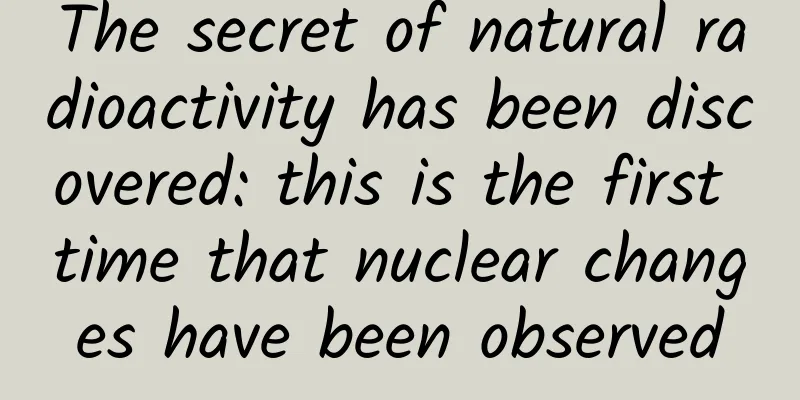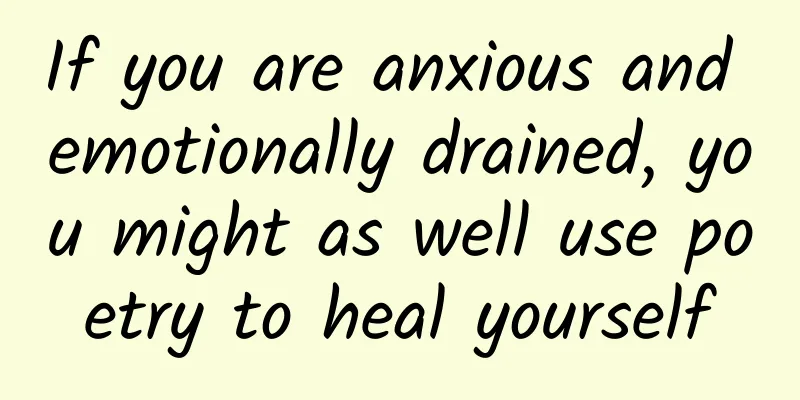Do you miss home more during Chinese New Year? Scientific nostalgia can also make you happy during Chinese New Year

|
Under the epidemic, various places have advocated celebrating the Spring Festival in the place where they are. Those who are away from home can only think of their families through their mobile phones, chat with old classmates on the phone, and look through photos of the family eating New Year's Eve dinner in previous years. Nostalgia filled my heart, and my mood gradually became emo... Nostalgia research has a long history What exactly is nostalgia? Nostalgia is a normal psychological phenomenon. From a large number of nostalgic poems, we can see that nostalgia was a synonym for the ancients' homesickness and longing for the past. It was only in recent years that it was given more profound meanings. Westerners have a more direct interpretation of nostalgia: the English word “nostalgia” is derived from the Greek words “Nostos” (return to the homeland) and “Algos” (pain), meaning the pain of not being able to return to the homeland, which is extended to “homesickness”. In 1688, Swiss soldiers stationed abroad fell ill collectively. The main symptoms were loss of appetite and mental depression, and some even attempted suicide. Doctor Johnson Hofer found out that the sick soldier had damaged his eardrums and brain cells by the constant ringing of cowbells day and night when he was stationed at the foot of the Alps. After he left, the sound of cowbells would still appear in his mind from time to time, triggering homesickness. Clip from the movie Heidi and Grandpa Hofler's diagnosis was that the soldiers were suffering from an organic neurological disease, the root cause of which was nostalgia (missing the sound of cowbells in the past), and the treatment was to allow the soldiers to return home in batches to recuperate as soon as possible. It is unknown whether returning home to rest helped the soldiers recover, but since then the term "nostalgia" has begun to appear in the medical field, and the explanation has gradually shifted from physiological to psychological. In clinical practice, doctors often confuse nostalgia with homesickness, and even believe that nostalgia is a form of depression. In the 1970s, American psychologist Wollman and others put forward two views: First, nostalgia is different from homesickness, and nostalgia has a wider scope; second, nostalgia is a normal and common psychological experience of human beings. Walman even believes that 7-year-olds also have nostalgic psychology, which is manifested in "happily missing birthdays and fun vacations." Nostalgia has mixed reviews Modern psychologists' research on nostalgia focuses on its functions and applications. The functions of nostalgia are mainly manifested in the emotional experience of both sexes (positive and negative), and can be applied to different fields such as tourism, marketing, psychological research, and medical clinics. The positive experience of nostalgia is mainly manifested in promoting the generation of positive emotions and making people feel happy. British psychologists Shetrickdes, Davis and others believe that humans will store positive emotions and past experiences in their hearts, and release them through nostalgia at the right time, allowing lost and negative individuals to regain their love for life. Another manifestation of positive experience is maintaining and enhancing social connections. Through nostalgia measurement scale surveys and experimental studies, Shetichides, Davis and others found that nostalgia makes individuals feel more cared for and have stronger interpersonal skills. Nostalgia measurement chart Source: Screenshot from Wanfang.com Unlike psychologists such as Shetikides, American psychologists such as Peters and Clore believe that the negative experience of nostalgia is greater than the positive experience, and its main manifestation is that it makes people feel frustrated. Nostalgic individuals make a strong contrast between the past and the present, suggesting to themselves that life was better in the past. This kind of nostalgia will make most people feel a sense of failure, and only a small number of people will learn lessons from it. Another important manifestation of negative experiences is the induction of mental illness. Studies have found that some individuals who are completely immersed in nostalgia may eventually develop psychological disorders or social phobia due to their own difficult-to-overcome psychological burden, weak willpower, and self-evaluation that deviates from the norm. Celebrating the New Year in Place: Scientific Nostalgia The conditions that trigger nostalgia can be summarized into several main types, such as temperature, emotion, and historical experience. Cold weather makes people more nostalgic than hot weather. Through experiments, Shetikedes and others found that winter is the season with the most nostalgia and summer is the season with the least nostalgia. A psychology professor at Sun Yat-sen University found through experimental research that nostalgia is more common in cold weather. The Spring Festival is usually the coldest time of the year (especially in the north), which can easily make people feel nostalgic. In view of this, foreigners who spend the Spring Festival in their hometown should avoid being in a cold and closed environment for a long time. Stills from Double Detective Depression is more likely to lead to nostalgia. When depressed, individuals tend to compare today's situation with yesterday's achievements, thus concluding that "those years were better", resulting in a deeper sense of loss. If people who spend the Spring Festival alone during the epidemic are more likely to feel nostalgic, they can choose to spend the Spring Festival with colleagues and friends, which is more conducive to maintaining a healthy mood. Historical experiences can also easily make people nostalgic, such as watching historical films and TV dramas, reading history books, visiting historical sites, etc. Among them, visiting historical sites (especially celebrity sites) is the most likely to arouse nostalgia. The biggest psychological impact of historical experience is that individuals unconsciously compare themselves with the ancients, which leads to a sense of loss. Therefore, when traveling to ancient sites, it is best to invite three or five friends to travel together. From the perspective of modern psychology, nostalgia is not only a yearning for the good old days, but also a complex adaptive mechanism for humans to cope with the environment, and an instinctive need of humans. This need permeates every aspect of a person and changes with the environment. For Chinese people, it is normal to feel nostalgic when celebrating the New Year away from home. What we can do is to arrange our holiday life reasonably, keep in touch with relatives and friends, and don't let nostalgia ruin the joy of the holiday. References 1. "A Review of Research on Nostalgia", Li Yue, Southwest University, Henan Science and Technology, 2012.01 2. "Study on the Nostalgia of Adults and Its Relationship with Sense of Belonging and Depression", Guo Shengnan, Hebei University, June 2015 3. Globalization and the Nostalgia Paradigm, Roland Robertson (USA), Shanghai People's Publishing House, September 2000 END Tadpole Musical Notation original article/reprint please indicate the source Editor/Xiao Xitushuo |
<<: Why is the new coronavirus always one step ahead of others?
>>: Why are fireworks colorful? Fireworks and firecrackers are actually different
Recommend
Stop eating like a glutton! These types of people should pay special attention →
Review expert: Wang Xuejiang, professor at Capita...
The efficacy and function of the fine-axis wormwood
The world is full of wonders, and Chinese medicin...
Parents, stop being reluctant to turn on the air conditioner! Some elderly people have been convulsed by the heat and have been admitted to the ICU...
It’s too hot! In recent days, 40℃ is becoming a c...
Three Chinese patent medicines for anxiety
Many people will suddenly feel anxious, have head...
The efficacy and function of red mulberry
Friends who don’t know about the red mulberry lea...
Entering the "flower umbrella world" in the ocean - jellyfish
In the mysterious depths of the ocean, there live...
The efficacy and function of wild alfalfa
The medicinal value of wild alfalfa is beyond our...
Long picture丨Returning from space, counting the moments of astronauts landing and leaving the spacecraft in the past 20 years
Produced by: Xinhua News Agency PLA Branch Produc...
"Now I am Death": The True Life of Oppenheimer
Oppenheimer oversees the final assembly of "...
The efficacy and function of golden pheasant horsetail ginseng
There are many kinds of common Chinese medicinal ...
Do you still remember these moments in 2021?
Looking back at 2021 We have been touched and pro...
From "the emperor who sells dung" to "the place where grains are reincarnated", why do we apply fertilizer?
For most of the long time, agriculture, especiall...
Beware! A 76-year-old man became "nervous" after returning from a trip, just because he was infected with this "bacteria"
After returning from a trip, 76-year-old Grandma ...
Marine Life Illustrations | Killer whales are called “tigers” because they are really fierce?
(Source: Zhejiang Ocean University)...









